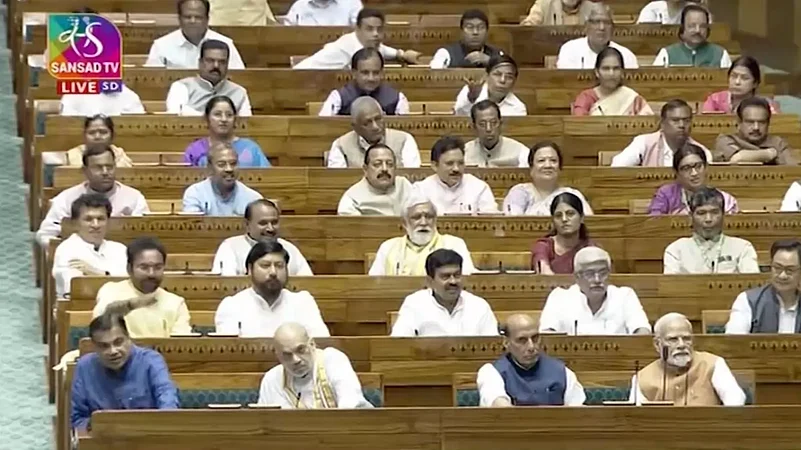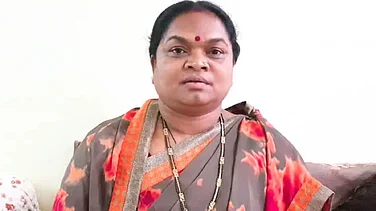The Lok Sabha on Wednesday passed the Women Reservation Bill with overwhelming consensus across the party lines.
In the voting held through slips, 434 MPs voted in support of the bill and just two MPs voted against it.
After clearing the Lok Sabha, the Women Reservation Bill, formally called the Nari Shakti Vandan Adhiniyam, 2023 [The Constitution (One Hundred Twenty-Eighth Amendment) Bill, 2023], would go to the Rajya Sabha. Later, it would go to the President of India to be signed into law.
The Narendra Modi government introduced the Women Reservation Bill, formally called the Nari Shakti Vandan Adhiniyam, 2023 [The Constitution (One Hundred Twenty-Eighth Amendment) Bill, 2023], on Tuesday. In the run-up to the Special Session of the Parliament, amid uncertainty over the agenda of the session, parties across the spectrum had called for the passage of the bill, setting the stage for its passage in Lok Sabha with near-unanimous support.
Following the passage of the Women Reservation Bill, Prime Minister Narendra Modi thanked MPs across party lines and said the legislation will boost women empowerment.
Modi tweeted, "Delighted at the passage of The Constitution (One Hundred and Twenty-Eighth Amendment) Bill, 2023 in the Lok Sabha with such phenomenal support. I thank MPs across Party lines who voted in support of this Bill. The Nari Shakti Vandan Adhiniyam is a historic legislation which will further boost women empowerment and will enable even greater participation of women in our political process."
While there was criticism for the bill over the exclusion of Other Backward Classes (OBCs) and delay in its implementation, almost all the parties in the hall voted in favour for the bill. It is understood that only the All India Majlis-e-Ittehadul Muslimeen (AIMIM) voted in opposition of the bill as it has two MPs and its chief Asaduddin Owaisi had come in opposition of the bill.
"AIMIM leader Asaduddin Owaisi was the lone voice of opposition to the bill contending that the measure would provide reservation only to "savarna women", and exclude OBC and Muslim women who have little representation in Parliament. The AIMIM has two members in Lok Sabha," reported PTI.
It has been pointed out that the earliest that the women's reservation can be introduced in Lok Sabha is 2029 as the census would be carried out sometime after the 2024 general elections, following which a delimitation exercise would be carried out. It is after these two conditions are fulfilled that the seats in the Lok Sabha and assemblies of states and UTs would be reserved for women.
While Congress and party leader Rahul Gandhi also criticised the bill over the exclusion of OBCs and requirement of delimitation and census for the implementation of the bill, the party supported the bill as Rahul and Sonia Gandhi had earlier said. Additionally, Opposition parties like the Nationalist Congress Party (NCP), Janata Dal-United (JD-U), and Bahujan Samaj Party (BSP) had declared their support for the bill.
Since the Women Reservation Bill involves amending the Constitution of India, a two-thirds majority of the members present and voting in the house was required for its passage. A similar two-thirds majority would be required for the passage of the bill in the Rajya Sabha. While the ruling Bharatiya Janata Party (BJP) has a simple majority on its own in the Lok Sabha, it does not have a two-thirds majority and had to depend on bipartisan support for the bill.





















